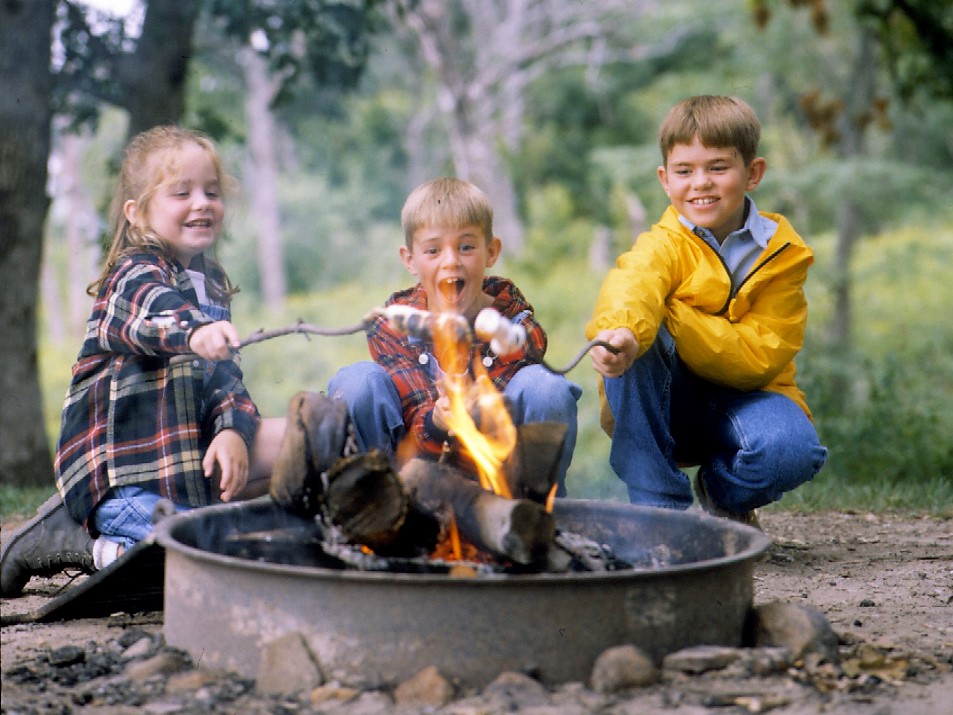
It's official! Your kid is registered for summer day camp. This is going to be such a great experience for your little one! But now you're wondering, "What do I have to do to prepare my child, and myself, for the first day?"
When heading to camp for the first time, kids are often nervous about trying new activities, making friends, and separating from their parents, says Heather McCarthy, LICSW, a social worker for children. She recommends addressing these fears by asking your child about his or her anxieties. "Most kids are anxious going into new situations," she says. "Parents can validate these feelings by letting them know it's normal."
In order for your child to experience an easy transition, camp experts have suggested running the following errands and having basic conversations before the first day:
Go shopping with your child
Most camps provide a list of items needed for different activities like a towel, sunscreen, and a bathing suit for swimming. Take your kid to the store with you—allowing your kid to pick out these items will help him to feel excited about embarking on a new adventure.
"Involving kids in the camp preparation by shopping together helps give them ownership and confidence about the experience and lessens their anxieties," says Sarah Wilson, director of travel communications for The Family Backpack.
Discuss the camp schedule and activities
While you're shopping, you can tell your child all about the fun activities she will get to participate in at camp. If you get her group's schedule in advance, you can go through the specific activities you are buying supplies for. If not, most camps have team building activities, sports, swimming, and art classes that you can describe to your child. Then ask which activity she is most excited about.
Talk about how to make friends
Making friends is a skill that can be difficult for some kids. By role-playing with your child on different ways to start conversations with kids his age, you will give him the confidence to try it. You can also get books from the library about making friends and going to camp: How Do Dinosaurs Play with Their Friends by Jane Yolen, Little Lonely Leigh by Sally Huss, and Making Friends Is an Art by Julia Cook are great ones to check out.
Label everything
Anything that goes to camp with your kid, like clothing, goggles, and other supplies, should have your child's name on it. This will help you keep track of her belongings throughout the summer.
"My sister let anyone borrow her stuff and then on the last day of camp my mom asked the kids to check their labels, and sure enough, someone had her towel," says Michelle Riddell, a longtime camper. Your child will be moving to different activities and changing clothes for swimming which means things can easily get lost. Use a fabric marker or iron-on labels for clothing and a sharpie for goggles and other accessories.
Visit an open house or orientation
An open house or orientation is a way for your child to become familiar with camp life for a few hours. McCarthy recommends attending the open house to help ease children's anxieties. "If a parent attended camp as a child, they can talk about their own positive camp experiences while visiting the camp. An open house enables a child to know what to expect which can help them feel confident."
During the open house, you can walk around the camp with your child and let her see where the activities are held. It is also a time to ask questions and meet the counselors and other campers.
Talk to previous or current campers
If your child is unable to attend orientation, you could ask the camp director if he can connect you with another camp family so your child could meet or speak to a camper before the start of camp. Ideally, this camper would be in your child's group, so he'll have a familiar face on the first day. But even if not, this camper can give a first-hand perspective of how fun camp can be to make your little one feel at ease to go somewhere new without you.
Teach sunscreen application and safety
Most camp activities are outdoors, so your little one will be exposed to the damaging ultraviolet B (UVB) rays that cause sunburns. By teaching your child proper sunscreen application and safety, you won't have to rely on the busy camp counselors to assist them. You should apply sunscreen to your child before camp, but also send her with SPF 15 or higher so she can apply it herself, or with the help of her counselor, before outdoor activities. If your child is particularly sensitive to the sun, consider sending them to camp with a rash guard with built-in UV protection.
Drop off medication with the camp nurse
If your child uses prescription or over-the-counter medications such as preventative care for seasonal allergies, talk to the camp nurse about the medication protocols. Some camps require medications to be locked in the nurse's office and dispensed only by the nurse. If your child requires an Epi-Pen or asthma inhaler that needs to be with them, check to see if a counselor can be responsible for carrying it throughout the day.
Mentally prepare yourself for the first day
Your child may be sad to leave you when he gets on the bus or first joins his group.
"It's completely fine to leave an upset camper; the counselors are prepared for it," says Christina MacDonald, the program supervisor for the Hingham Recreation Department in Hingham, Massachusetts. "Normally, the camper calms down within minutes of being dropped off and is having fun at their first activity."
